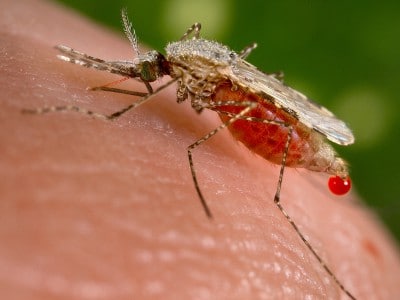Eleven cases of Zika infection confirmed in BC, say health officials

 The BC Centre for Disease Control reports that eleven BC residents have been infected with travel-related Zika virus, including three pregnant women. Officials say that 1,147 tests have been conducted on BC and Yukon residents since last November, with most of those tested being women who had travelled to countries known to have outbreaks of the mosquito transmitted virus, including Brazil, Haiti, Jamaica, Columbia, Dominica, St. Martin and El Salvador.
The BC Centre for Disease Control reports that eleven BC residents have been infected with travel-related Zika virus, including three pregnant women. Officials say that 1,147 tests have been conducted on BC and Yukon residents since last November, with most of those tested being women who had travelled to countries known to have outbreaks of the mosquito transmitted virus, including Brazil, Haiti, Jamaica, Columbia, Dominica, St. Martin and El Salvador.
Nationally, Health Canada confirms 136 travel-related cases and one case of locally acquired infection through sexual transmission, stating that although there are no reports of mosquitoes in Canada spreading the disease, there is an “ongoing low risk” to Canadians traveling to countries with known outbreaks of Zika virus. Since the virus has been linked to brain damage and microcephaly in newborns whose mothers were infected by the virus while pregnant, health officials are warning pregnant woman in particular to avoid travel to countries with outbreaks.
Experts have determined that of a recorded 602 babies born in Brazil with definite or probable Zika infection, one in five had normal head circumferences but brain defects nonetheless, indicating that current pre-natal screens for Zika infection which focus solely on the fetus’ head size may not be sufficient. Researchers found that mothers who reported having developed a rash during the third trimester of pregnancy were associated with brain abnormalities in infants born with normal head sizes.
On the findings, Dr. Julie VanSchalkwyk, head of obstetrics and gynecology at BC Women’s Hospital in Vancouver says, “I think what is most important is to realize ultrasound findings alone cannot either rule in or rule out Zika infection and that we really need to look at this infection as something that may be identifiable in the setting in the pregnancy, or it might even be postpartum as the infant develops that we start to see these effects, so followup is really important.”
While Zika virus vaccines or antiviral medications have yet to be approved, researchers have confirmed that a benign bacteria called Wolbachia pipientis is able to completely block transmission of the virus, opening the door to a potentially low-cost approach for controlling mosquito-borne viral diseases such as Zika virus.
From a new study published in the journal Scientific Reports, researchers at the University of Wisconsin-Madison School of Veterinary Medicine infected mice with Zika virus and then exposed them to mosquitoes containing the Wolbachia bacteria. The results showed that those mice with Wolbachia were less likely to become infected by Zika and that those who were infected were not capable of transmitting the virus in their saliva – the means by which the virus spreads from mosquitoes to humans.
“Mosquitoes with Wolbachia were less capable of harboring Zika virus, and though they do get infected with Zika, it is to a lesser extent than wild-type mosquitoes,” says Matthew Aliota, first author of the study.
So far, 39 countries and territories in the Americas have developed outbreaks of the Zika epidemic, with projections of at least four million people infected by the end of 2016.


